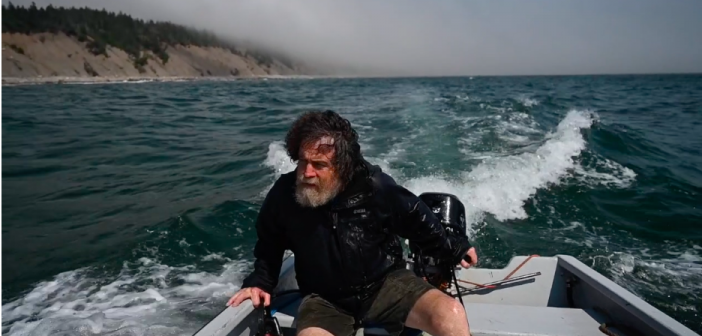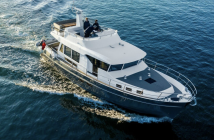Why a Nova Scotian couple refused to leave their island paradise
(From The Globe and Mail)
The waters around Mosher Island can be treacherous, and it was Thom Drew’s job to help ships navigate them – until the Coast Guard automated lighthouses like his. He and his wife are still there, living a solitary and hard-working life, and they wouldn’t have it any other way.
The sea that thrashes at the rocks along Nova Scotia’s South Shore has claimed hundreds of ships since record keeping began here. On a recent Monday morning, it took one more – Anne Drew’s little green skiff.
By the time the fog was burning off, her husband, Thom Drew, had launched a search-and-rescue mission, tearing over the waves in his motorboat and squinting toward the blue horizon, looking for some sign of the boat that slipped its moorings and floated away in the night.
“I’m going to be in real trouble if I can’t find that one,” he shouted over the roar of the outboard motor. “That was my wife’s favourite boat.”
After nearly 40 years of living on Mosher Island, Mr. Drew, 72, has learned to accept that sometimes, boats just disappear. The sea pulls at their ropes until they finally give. Other times, violent storms smash them to pieces against the shore. The Drews figure they have lost about six boats one way or another since they came here in the 1980s.
It’s a small price to pay for the home they have created for themselves as the only year-round residents of Mosher Island, a three-kilometre-long patch of rock and spruce trees that they share with two dogs, eight goats, a dozen chickens, two cats and a few ducks. Accessible only by boat, it’s only about a half-an-hour ride from the mainland, but a world away from the lifestyle of convenience that most people are used to.
From 1981 until 1990, Mr. Drew was the assistant lighthouse keeper at Mosher Island, which has had a lighthouse in continuous operation since 1868.
When the Canadian Coast Guard automated the light, forcing him out of the job along with hundreds of other Nova Scotia lighthouse keepers, he and his wife stayed. The island had everything they wanted, and they saw no reason to leave. “There was never any debate,” Mr. Drew said.
The Drews, who had already bought land near the lighthouse, vacated their government-owned home and moved into their goat barn. They turned a meadow thick with wild roses into a productive little farm, hemmed by apple trees and a garden that bursts with vegetables and herbs.
About 10 years ago, they built a new home, framed by wood harvested from the island, where they can watch whales pass by their kitchen window. Read more:




